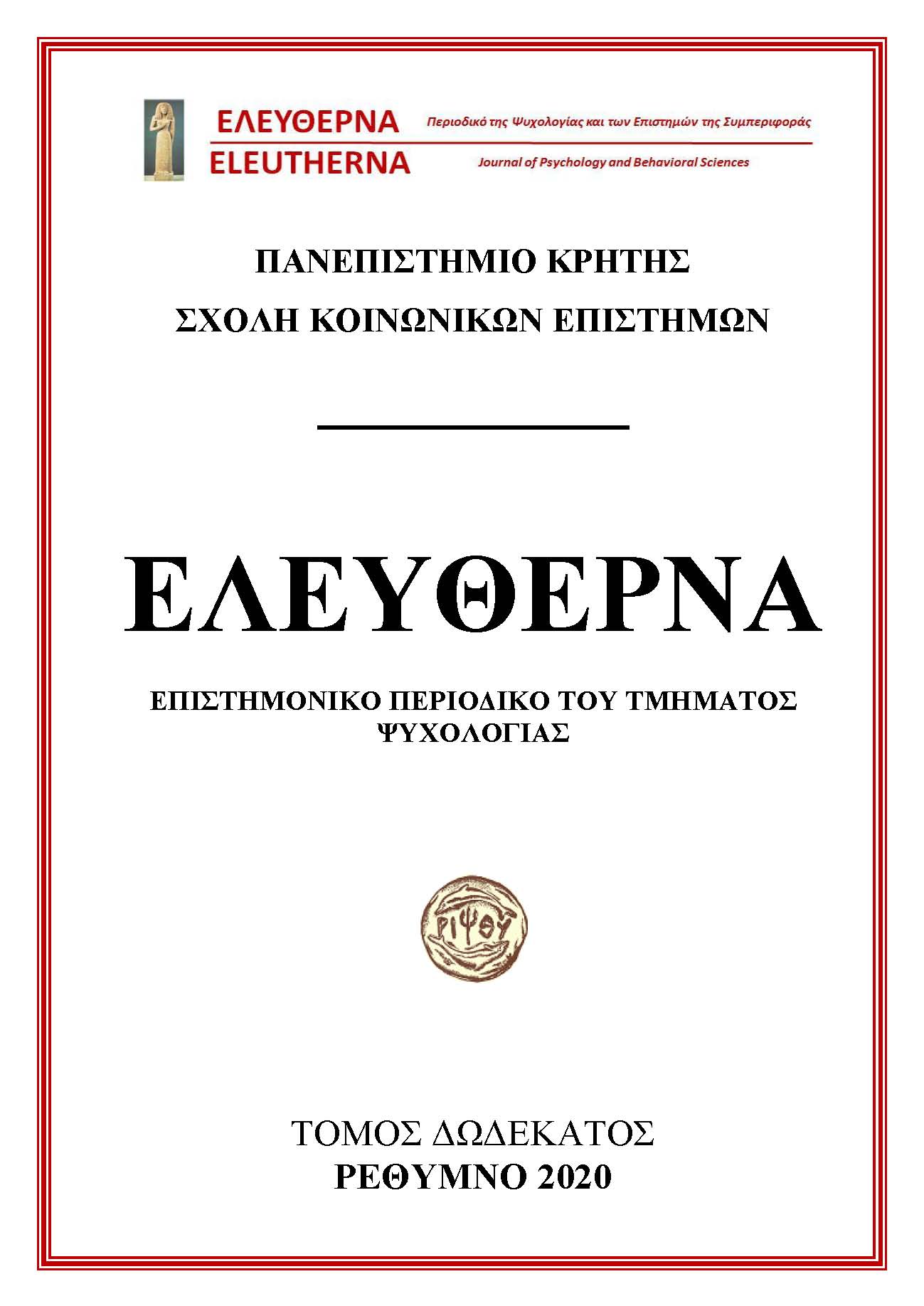Parental acceptance-rejection and academic procrastination: the mediating role of perfectionism and passive aggressiveness
DOI:
https://doi.org/10.26248/eleutherna.v12i0.1538Keywords:
parental acceptance-rejection, academic procrastination, perfectionism, passive aggressivenessAbstract
In recent years there has been an escalating research interest in academic procrastination in the areas of educational and counseling psychology. This research paper focuses on the investigation of perfectionism and passive aggressiveness as mediating factors in the relationship between academic procrastination and perceived parental acceptance-rejection (PARTheory). Thirty ninety nine (n=399) students from Universities and Technological Institutions from all over the country participate in this research. Procrastination, parental acceptance-rejection, perfectionism, and passive aggressiveness are explored with respect to the following scales (after proper adaptation to the Greek reality): Procrastination Assessment Scale-Students, The Parental Acceptance- Rejection, Almost Perfect Scale-Revised and the Defense Style Questionnaire subscale referring to passive aggressiveness. The evaluation of the symptoms of psychopathology is investigated through the Brief Symptom Inventory. PROCESS analysis is used to investigate the relationship between the variables that were studied. Mediation analysis reveals that perfectionism is partly mediated by the relationship between paternal rejection and procrastination, while it does not mediate the relationship between maternal rejection and academic procrastination. Furthermore, findings also reveal that passive aggressiveness plays a mediating role in the relationship between paternal and maternal rejection and academic procrastination. The specific findings are discussed according to literature.
Downloads
Published
How to Cite
Issue
Section
License
This work is licensed under a Creative Commons License Attribution-NonCommercial-ShareAlike 4.0 International (CC BY-NC-SA 4.0).
Under this license EJPBS provides immediate open access to its content on the principle that making research freely available to the public supports a greater global exchange of knowledge.


